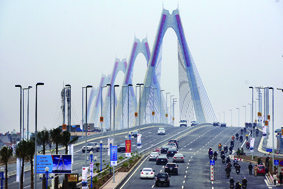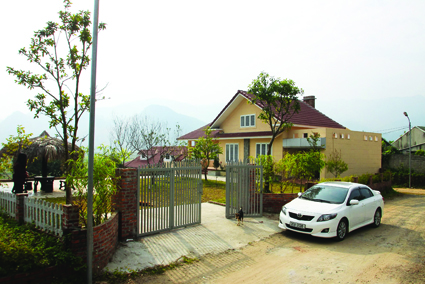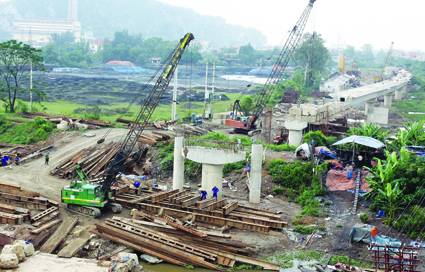Prevention of environmental pollution and degradation is regarded as the key task in the revised Environmental Protection Law (the Law), which was passed in June this year.
The 170-article Law governs environmental protection activities; policies, measures and resources for environmental protection; and rights, obligations and responsibilities of agencies, organizations, households and individuals in environmental protection.
Under the Law, national environ-mental protection must go hand in hand with regional and global environmental protection, and environmental protection must not be detrimental to the national sovereignty and security.
The Law affirms that environmental protection is the responsibility and obligation of all agencies, organizations, households and individuals. Organizations, households and individuals that benefit from the environment must make financial contributions to the environmental protection. Likewise, those who cause environmental pollution, incidents or degradation must take remedies and pay compensations for damage.
Environmental impact assessment
To prevent breaches of environmental impact assessment regulations, Article 18 lists three groups subject to environmental impact assessment, including: (i) projects falling under the competence of the National Assembly, Government or Prime Minister to decide on investment policy; (ii) projects using land of nature reserves, national parks, historical and cultural relic sites, world heritage sites, biosphere reserves or beautiful landscapes which have been ranked; and (iii) projects likely to exert adverse environmental impacts. The lists of projects of the second and third groups will be issued by the Government.
Environmental impact assessment must be conducted in the stage of project preparation. Project owners may conduct environmental impact assessment by themselves or hire consultants to do so. Main contents of an environmental impact assessment report are specified in Article 22 of the Law.
As required by the Law, a project owner must re-elaborate an environmental impact assessment report when: (i) it fails to implement the project within 24 months after the environmental impacts assessment report is approved; (ii) it changes the location of project implementation planned in the approved environmental impact assessment report; or (iii) it increases the scale or capacity or changes technologies of the project, causing greater adverse environmental impacts than predicted in the approved environmental impact assessment report.
Environmental protection in production, business and service activities
The Law devotes Chapter VII to providing environmental protection in production, business and service activities.
Compared to current regulations, the Law makes more detailed provisions on environmental protection in economic zones, industrial parks, export processing zones, hi-tech parks, industrial clusters and business and service complexes. Functions of agencies managing environmental protection and environmental protection activities in these areas are clearly defined in the Law.
Regarding import of discarded materials, organizations and individuals must import discarded materials only for use as production materials and pay collaterals for them. Importers must have separate warehouses and storing yards which satisfy environmental protection conditions for storing discarded materials. They must also procure technologies and equipment for recycling and reuse of discarded materials and removal of impurities from discarded materials under environmental technical regulations. Under Article 76, discarded materials imported from abroad into Vietnam must comply with environmental technical regulations and be on the Prime Minister-endorsed list of discarded materials permitted for import. The Law does not provide purchase and sale of imported discarded materials.
According to Clause 3 of Article 75, the import of used seagoing ships must comply with environmental technical regulations. The Government will stipulate eligible entities and conditions for import and dismantlement of used seagoing ships.
Waste management
Under the Law, wastes must be managed in all stages of generation, reduction, sorting, collection, transportation, reuse, recycling and destruction.
Owners of production, business and service establishments must recover and dispose of discarded products. People’s Committees and state management agencies in charge of environmental protection will create favorable conditions for these establishments to organize the collection of discarded products. Consumers must dump discarded products at designated places.
The Law makes new provisions on hazardous waste management. Accordingly, hazardous waste management contents must be stated in environmental protection master plans. Under Article 90, the Ministry of Natural Resources and Environment will issue the list and license the treatment of hazardous wastes. Therefore, provincial-level People’s Committees no longer license the treatment of hazardous wastes. The Law also stipulates conditions on hazardous waste treatment facilities.
Effective on January 1 next year, the Law will supersede the 2005 Law on Environmental Protection.
Environmental licenses and certificates granted under the 2005 Law remain valid until their expiry date.



